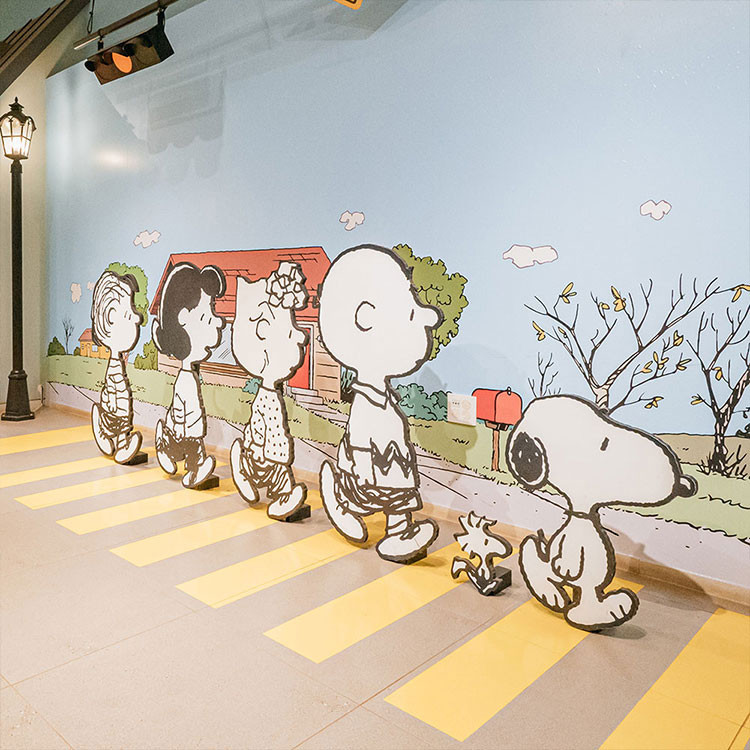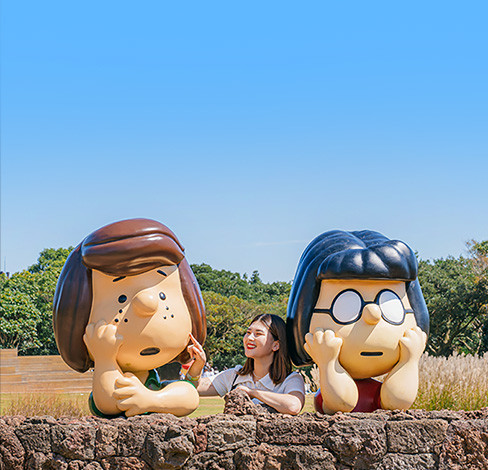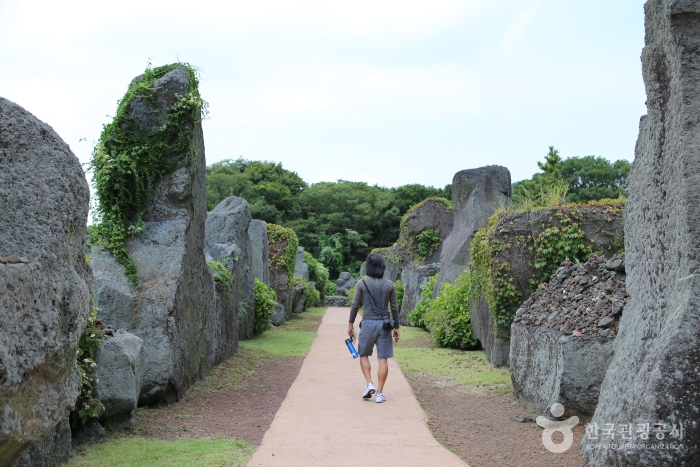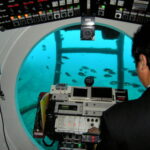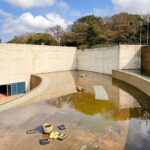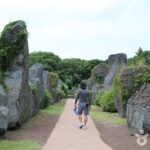Now Reading: Jeju Stone Park: A Complete Guide to Admission, Parking, and Nearby Dining
-
01
Jeju Stone Park: A Complete Guide to Admission, Parking, and Nearby Dining
Jeju Stone Park: A Complete Guide to Admission, Parking, and Nearby Dining
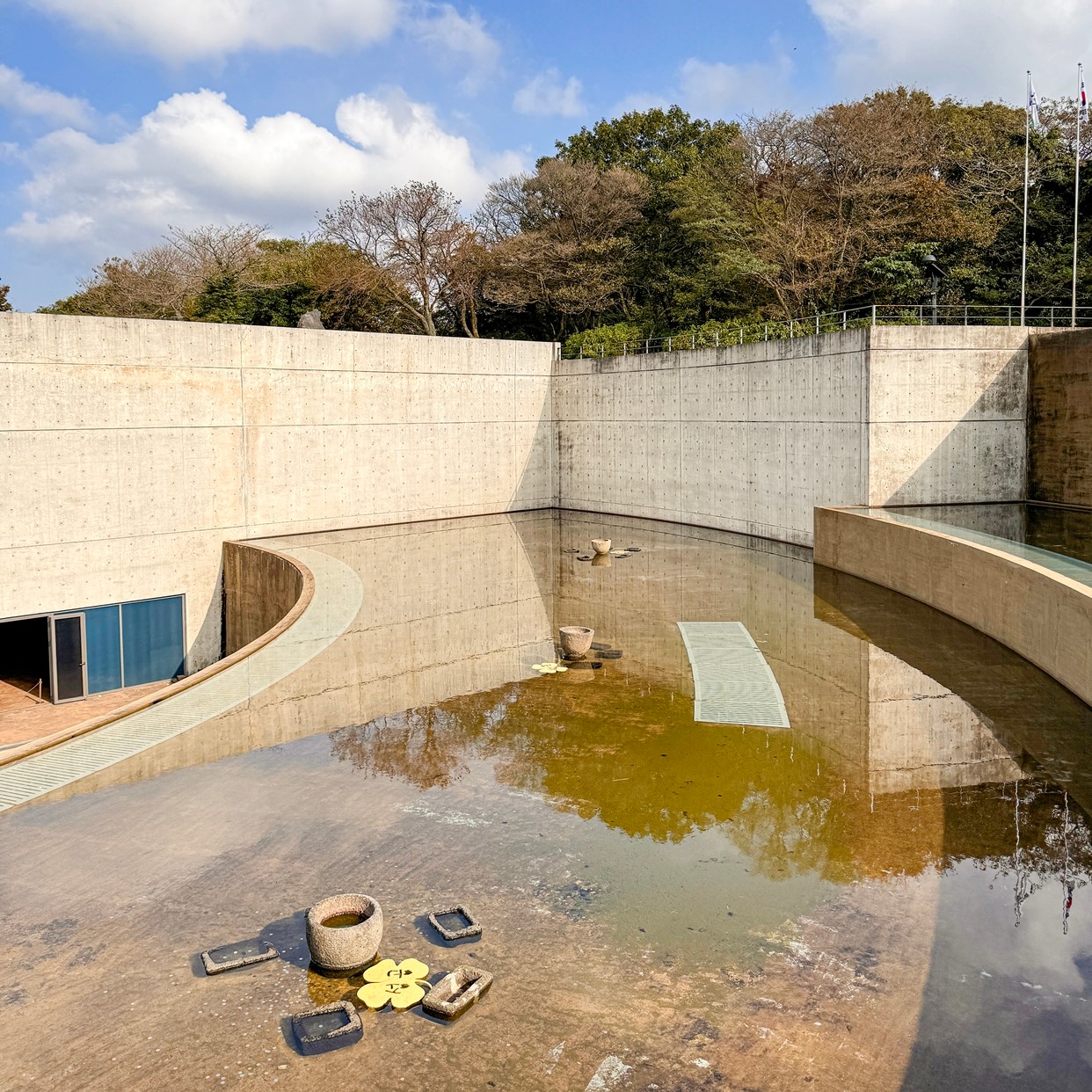
Jeju Stone Park: A Complete Guide to Admission, Parking, and Nearby Dining
1. Discovering Jeju Stone Park: A Cultural and Geological Marvel
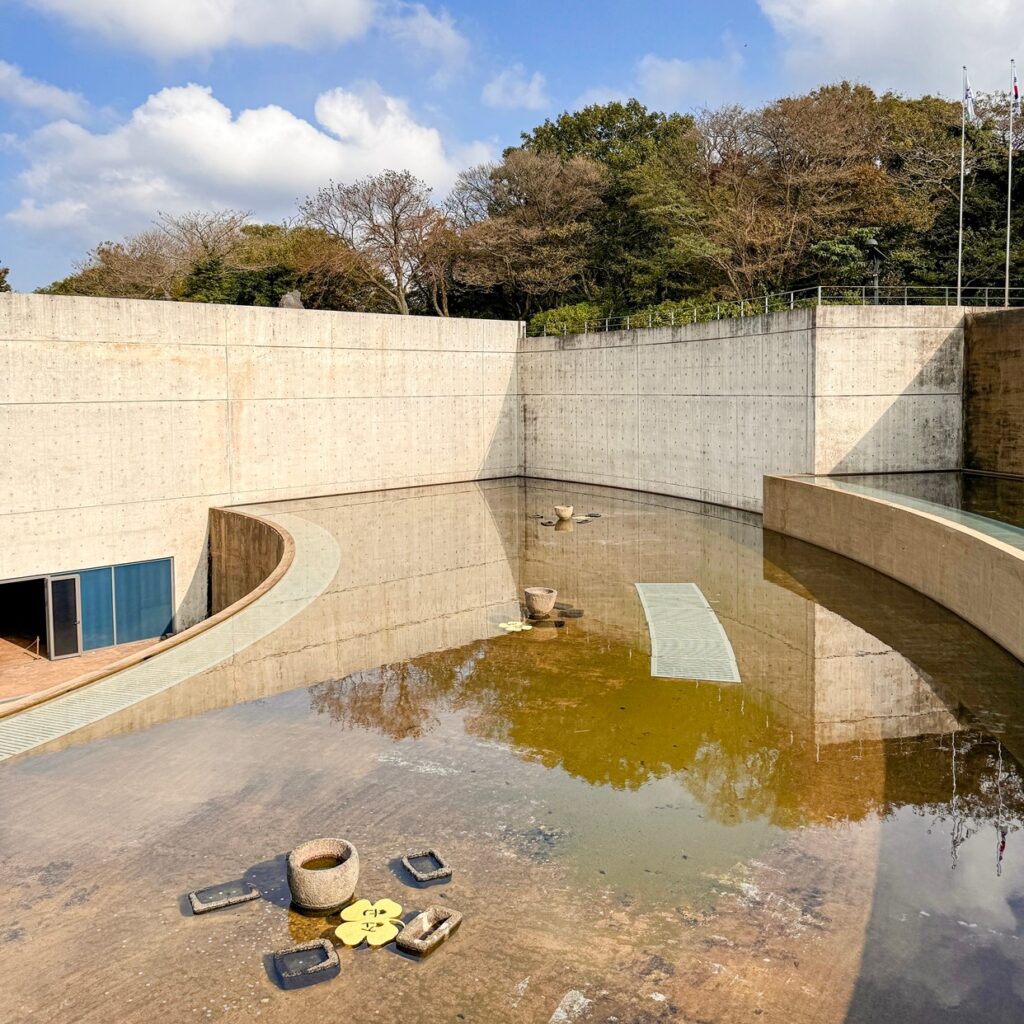
Jeju Stone Park, located in Jocheon-eup, Jeju City, is a sprawling 327-hectare cultural and ecological park that encapsulates the rich volcanic history and mythology of Jeju Island. Established in 2006, the park offers visitors an immersive experience into the island’s unique stone culture, featuring various exhibitions, sculptures, and traditional structures (Wikipedia).
Highlights of the Park
The park is divided into several thematic zones, including the Jeju Stone Museum, Mythology Garden, and a traditional Jeju folk village. One of the most iconic features is the collection of Dol Hareubang statues, symbolizing protection and fertility, which are emblematic of Jeju’s cultural heritage (Wikipedia).
2. Admission Fees and Discounts
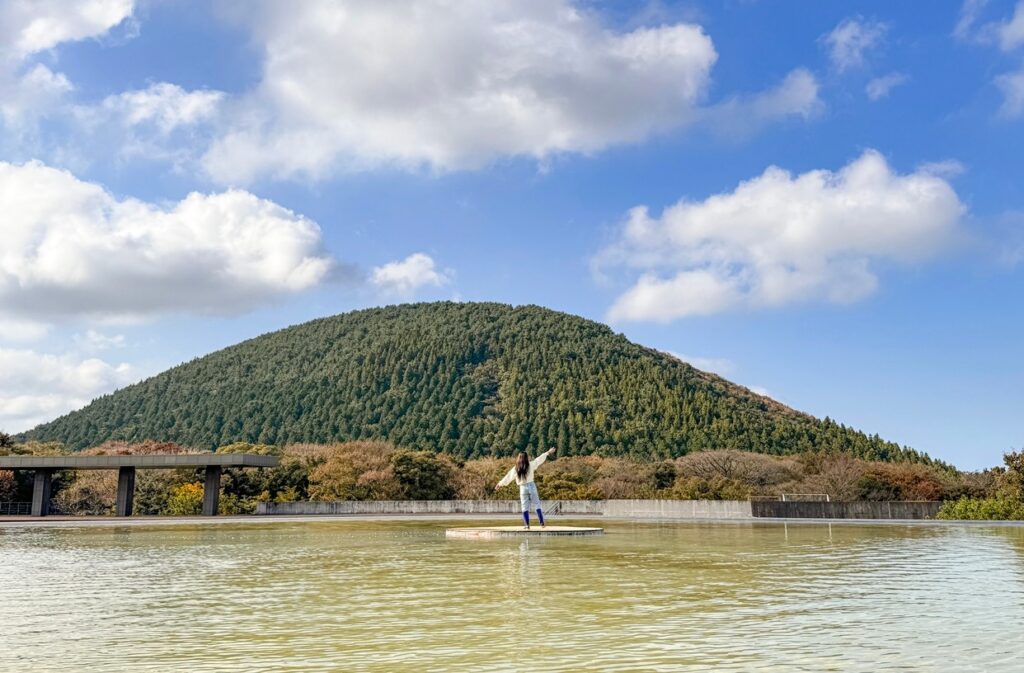
As of 2025, the admission fees for Jeju Stone Park are as follows:
- Adults: ₩5,000
- Youth (ages 13-18): ₩3,500
- Children (12 and under) and seniors (65+): Free
These fees contribute to the maintenance and preservation of the park’s facilities (VisitKorea).
Discount Opportunities
Visitors can avail discounts through various means:
- Jeju Tour Pass: Offers bundled access to multiple attractions, including Jeju Stone Park, at a reduced rate.
- Culture Day: On the last Wednesday of every month, certain cultural sites, including Jeju Stone Park, offer free or discounted entry.
It’s advisable to check the official website or local tourism offices for current promotions.
3. Parking Facilities and Accessibility
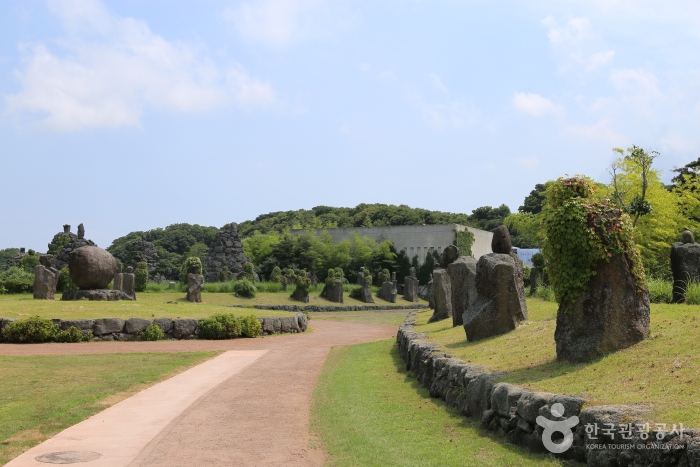
Jeju Stone Park provides ample parking space with multiple lots accommodating over 500 vehicles. Parking is free of charge for all visitors (VisitKorea).
Accessibility Features
The park is designed to be accessible for visitors with mobility challenges. Wheelchair rentals are available, and the main pathways are paved for ease of movement. Additionally, shuttle services operate within the park to assist visitors in reaching different zones.
4. Exploring the Seolmundae Halmang Exhibition Hall
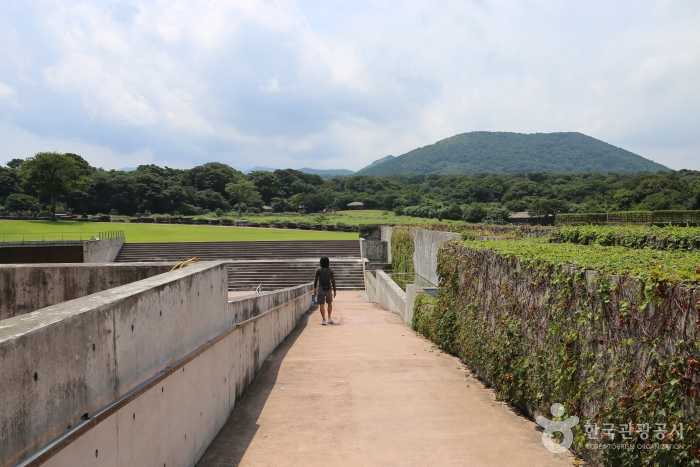
The Seolmundae Halmang Exhibition Hall delves into the legend of Seolmundae Halmang, the mythical grandmother who is said to have created Jeju Island. Through multimedia presentations and artistic installations, visitors can immerse themselves in this foundational myth of Jeju’s cultural identity (Jeju Stone Park Official Website).
5. Dol Hareubang Statues and Photo Opportunities
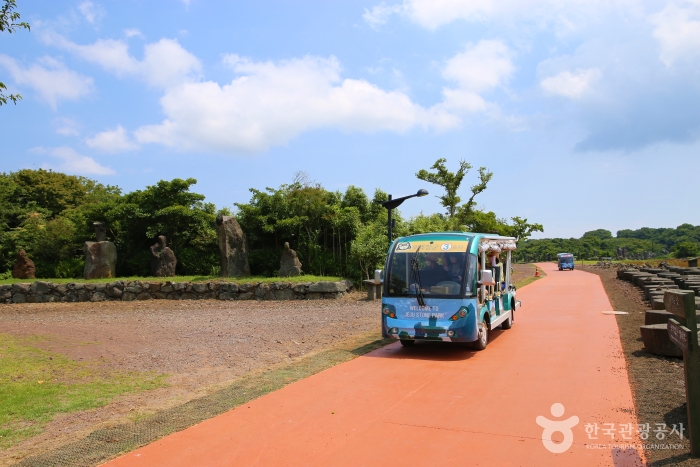
The park features an extensive collection of Dol Hareubang statues, each with distinct expressions and postures. These statues serve as popular photo spots, allowing visitors to capture memories amidst Jeju’s iconic stone guardians. Seasonal decorations, such as scarves in winter, add a festive touch to the statues.
6. Nature Trails and Ecological Walks
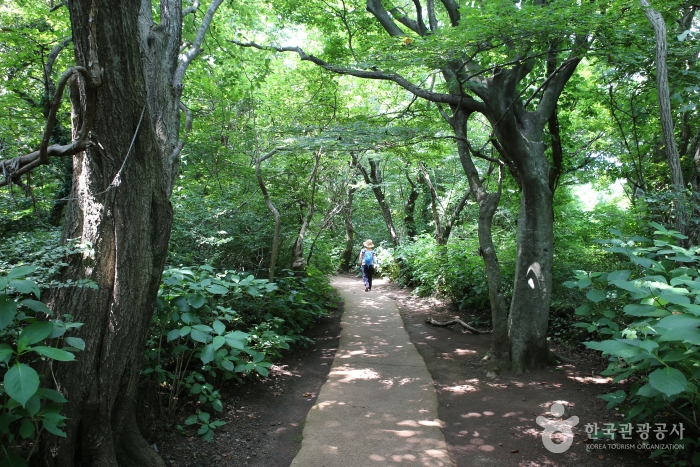
Jeju Stone Park boasts several nature trails that meander through lush forests and volcanic landscapes. The trails are well-marked and vary in length, catering to both casual walkers and avid hikers. Along the paths, interpretive signs provide information about the local flora and geological features.
7. Traditional Folk Village Experience
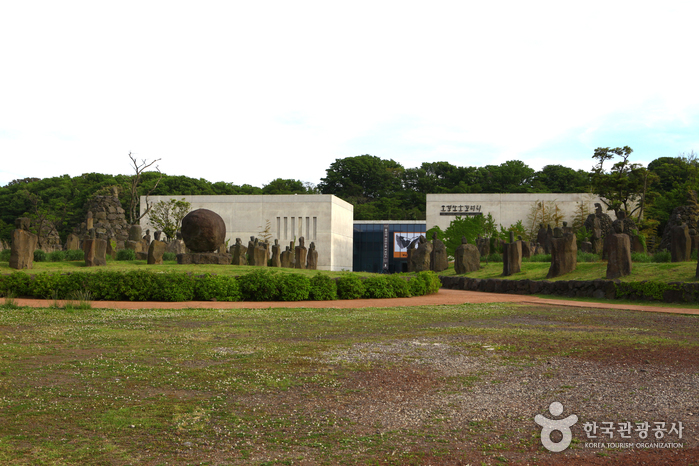
Within the park lies a meticulously reconstructed traditional Jeju village, complete with thatched-roof houses and stone walls. Visitors can observe traditional crafts, such as pottery and weaving, and participate in hands-on activities that offer a glimpse into the island’s historical lifestyle.
8. Recommended Photo Spots and Scenic Views
For photography enthusiasts, the park offers numerous picturesque locations:
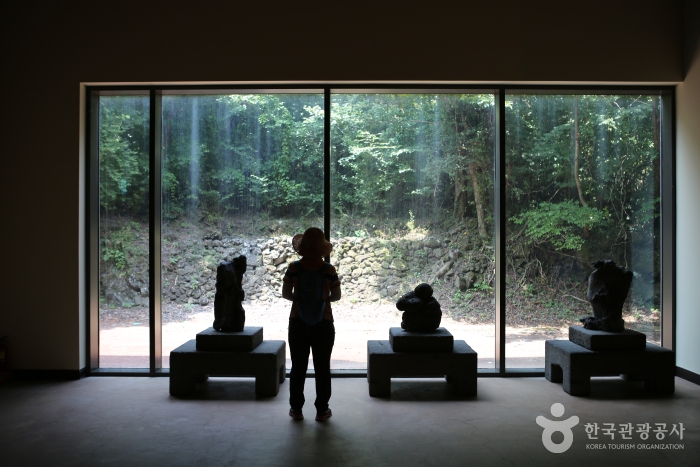
- Reflection Pond: A serene body of water that mirrors the surrounding stone sculptures.
- Observation Deck: Provides panoramic views of the park and distant Hallasan Mountain.
- Stone Pathways: Winding trails lined with unique rock formations and native plants.
Early morning or late afternoon light enhances the visual appeal of these spots.
9. Utilizing the Jeju Tour Pass
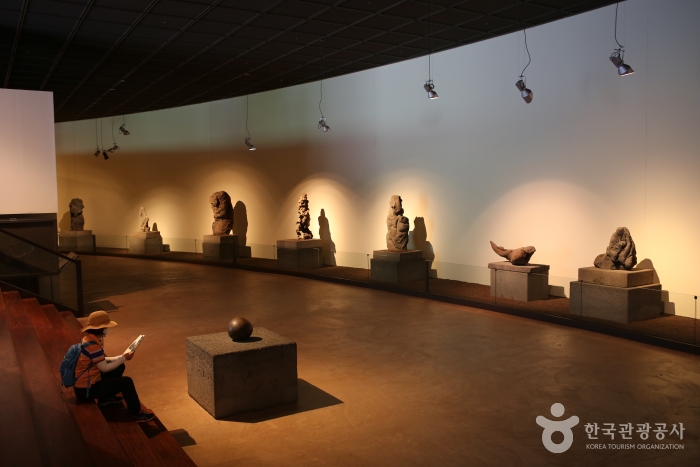
The Jeju Tour Pass is a convenient option for travelers planning to visit multiple attractions. It offers:
- Access to over 40 sites, including Jeju Stone Park.
- Flexible validity periods (24, 48, or 72 hours).
- Cost savings compared to individual ticket purchases.
Passes can be purchased online or at designated locations throughout the island.
10. Nearby Dining Options
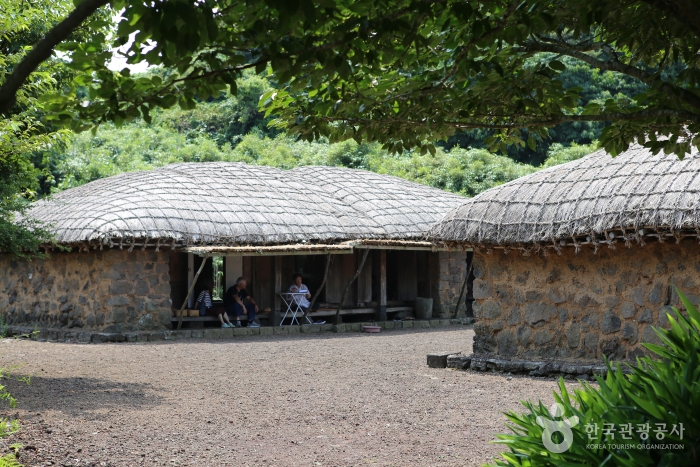
After exploring the park, visitors can enjoy a variety of local culinary delights at nearby restaurants:
- Seongmi Garden: Renowned for its chicken shabu-shabu and mung bean porridge.
- Nangtteul Rest Area: Offers traditional Jeju set meals in a rustic setting.
- Gakjibul: Specializes in grilled black pork, a Jeju delicacy.
These establishments provide authentic flavors that reflect Jeju’s rich gastronomic heritage (TripAdvisor).












